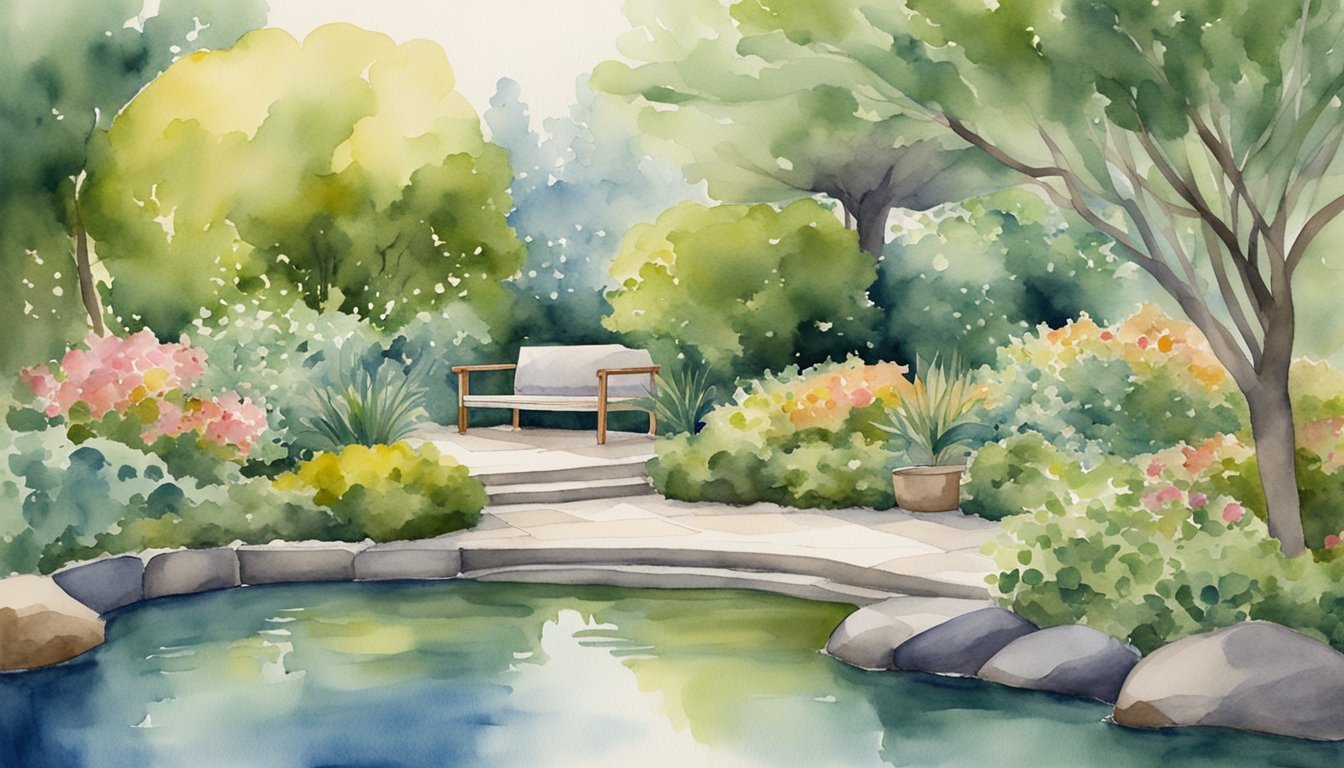Understanding Relaxation and Stress
The Science of Stress and Relaxation
Stress and relaxation are complex biological and psychological processes involving various elements of our body and mind. The sympathetic nervous system is responsible for the ‘fight or flight’ response, which can lead to the release of stress hormones like cortisol. On the other hand, relaxation occurs as the parasympathetic nervous system takes over, promoting a sense of peace and calm, and enabling the release of feel-good hormones like endorphins and dopamine 1.
Recognizing Symptoms of Stress and Anxiety
It is essential to be aware of the symptoms of stress and anxiety in order to address them effectively. Some common physical symptoms include:
- Rapid heartbeat
- Shallow or rapid breathing
- Headaches
- Digestive problems
Psychological symptoms may comprise of:
- Feeling overwhelmed or emotionally drained
- Excessive worry
- Difficulty concentrating
- Irritability
Psychological Barriers to Relaxation
The brain’s fear circuitry can make it difficult for some individuals to relax. Factors such as chronic stress, traumatic experiences, or an overload of distressing information can leave a lasting impact on the psyche, inhibiting our ability to truly unwind and let go of accumulated tension.
Practicing mindfulness is one way to counteract these psychological barriers to relaxation. By focusing on the present moment and remaining non-judgmental, we can begin to break free from negative thought patterns that contribute to ongoing stress and anxiety.
Physical Impacts of Stress on the Body
Stress not only affects our mental health but also has physical consequences. Chronic stress can lead to an increased risk of long-term health issues such as high blood pressure, heart disease, and even a weakened immune system.
Implementing various techniques to manage stress and promote relaxation, such as deep breathing, exercise, and progressive muscle relaxation, can help to counteract these physical effects. By nurturing our minds and bodies, we can lead healthier and more balanced lives.
Strategies for Cultivating Relaxation

Incorporating Relaxation Techniques
There are several relaxation techniques that can be practiced to increase the feeling of relaxation and promote well-being. Some commonly known techniques include deep breathing, progressive muscle relaxation, and visualization. Regular practicing of these techniques helps individuals cope with daily stressors and improves their mental health.
-
Exercise: Engaging in regular exercise is an effective way to enhance relaxation by helping the body release endorphins, which are natural mood enhancers.
-
Meditation: Meditation can help foster a sense of calm by focusing on the present moment and promoting self-compassion.
-
Yoga: Combining physical postures, breathing exercises, and meditation, yoga is beneficial for overall well-being and reducing stress.
Creating a Relaxation-Conducive Environment
A relaxing environment is essential for encouraging relaxation. Simple changes, such as decluttering the living space, spending downtime in a comfortable area, and incorporating elements of nature, can contribute to cultivating a more stress-free atmosphere. Additionally, it’s important to minimize exposure to news and social media, which may trigger stressors or anxiety.
Developing a Self-Care Routine
Establishing a self-care routine can significantly contribute to relaxation and improved mental health. Some activities to consider incorporating into a self-care regimen include:
- Journaling: Writing can help process thoughts and feelings, thereby reducing stress and promoting relaxation.
- Rest: Prioritizing adequate sleep and taking breaks from work or other obligations is key to maintaining a balanced and relaxed state of mind.
- Hobbies: Engaging in activities that bring joy and satisfaction can help distract from daily stressors, thus encouraging relaxation.
Building Healthy Relationships and Boundaries
Establishing and maintaining healthy relationships is essential for mental well-being. It’s important to surround oneself with supportive individuals who contribute to a positive environment. Additionally, setting boundaries, such as defining personal priorities, communicating openly with loved ones, and setting limits for work, can reduce stress and enhance relaxation.
By incorporating these strategies and focusing on one’s well-being, individuals can cultivate a more relaxed state of mind, improve their mental health, and successfully navigate life’s challenges.

